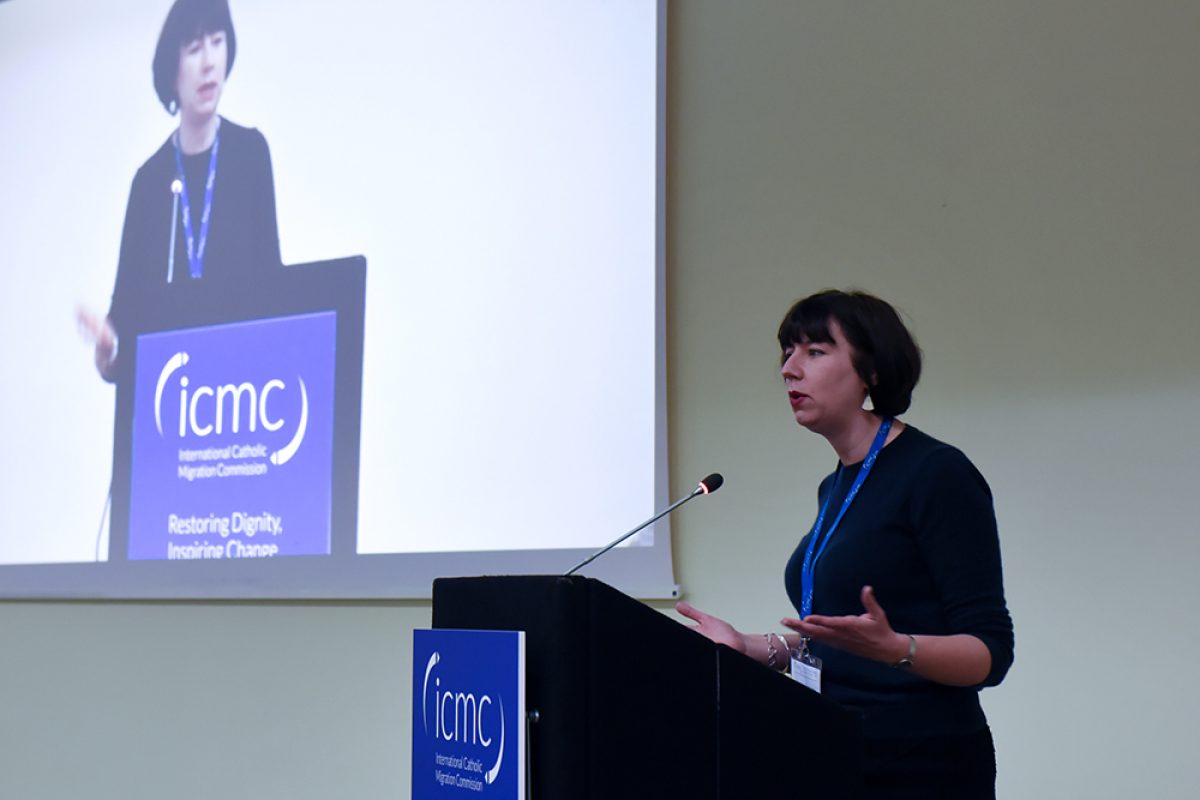Catholic Response to Migration Must Foster “Culture of Encounter”

The Gospel vision regarding migrants “requires a culture of encounter, accompaniment, dialogue, and hospitality, and increasingly of resistance to hostile forces: it requires love as part of the establishment of justice.”
This is one of the contributions that Catholic organizations working directly with migrants could make, stated Dr. Anna Rowlands in her keynote address to the International Catholic Migration Commission (ICMC) Council Plenary Meeting held in Rome on 6-8 March.
Drawing on her personal experience working with migrants in detention centers in the UK, Dr. Rowlands called the Catholic Church’s social teaching on economic, political, and social issues an “urgent, living tradition.” Such a tradition challenges individuals, civil society, and nation-states.
Rowlands, an Associate Professor of Theology and Religion at Durham University in the UK, suggested Catholic organizations have a critical role to play in articulating “the common good” in public policy and debate.
While working with migrants, she noticed that they often used the language of “good and evil” to explain their situation. She contrasted this with how similar language was used in public debate to speak of “high skilled migration [as] good, low skilled migration [as] bad.”
Rowlands noted that the Bible itself is “a history of migrant peoples” in which migration is presented in its complexity, rather than simply “bad” or “good.”
Drawing on Pope Francis’ statements and personal engagement with migrants, she noted the need for all – individuals, civil society, and nation-states – to overcome the “globalization of indifference” and reclaim responsibility for others, particularly those who are suffering.
To overcome the indifference and reassert the common good in our globalized society, Catholic organizations working with migrants need to contrast the current prevailing vision of human “good” with the reality faced by people on the move.
Rowlands concluded by referring to the Biblical book of Jeremiah (29:7) emphasizing, “our task is nothing less than seeking for the justice and the peace of the city, not for its own sake, but for the redemption of all.”
Watch Rowlands’ address to the ICMC Council